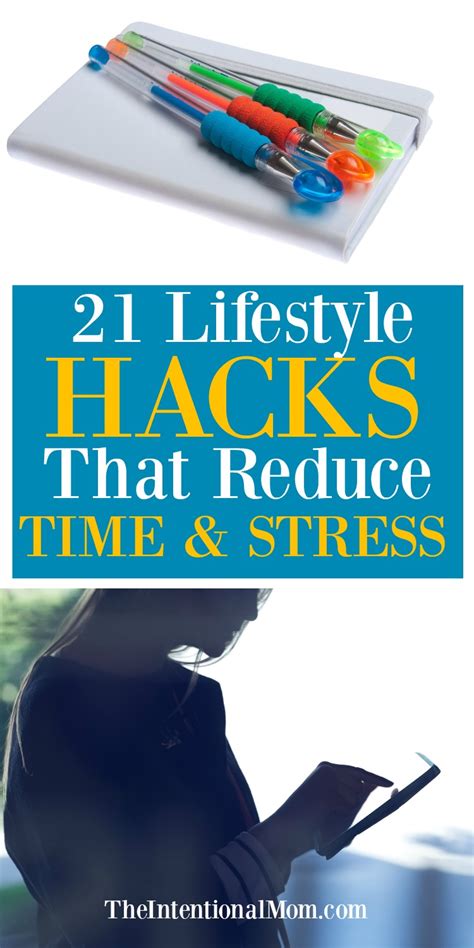In today’s fast-paced world, stress has become an unwelcome companion for many of us. The constant pressure to perform, manage our personal and professional lives, and keep up with the latest trends can be overwhelming. However, what if you could reduce your stress levels significantly with just a few simple hacks? Here are 10+ one-time courtesy hacks to help you achieve a more relaxed and balanced life.
1. Declutter Your Digital Life
Start by cleaning up your digital space. Unsubscribe from newsletters and promotional emails that clutter your inbox. Remove apps you no longer use from your phone. Organize your computer files into neat folders. This simple act can significantly reduce digital noise and make you feel more in control of your digital life.
2. Create a ‘Stop Doing’ List
Often, we focus on what we need to start doing to improve our lives. However, it’s equally important to identify what you can stop doing to reduce stress. Make a list of things that drain your energy, cause unnecessary worry, or distract you from your goals. This could be anything from quitting social media to stopping the habit of overcommitting yourself.
3. Implement the 2-Minute Rule
For any task that can be done in less than 2 minutes, do it immediately. This rule can help you avoid procrastination and reduce the number of tasks hanging over your head. Whether it’s responding to a simple email, taking out the trash, or making your bed, getting these small tasks out of the way can give you a sense of accomplishment and reduce stress.
4. Use the Power of ‘No’
Learning to say ‘no’ without feeling guilty is a powerful tool for reducing stress. Not every request deserves a ‘yes’. Be mindful of your capacity and prioritize your commitments. Saying ‘no’ to non-essential tasks can free up time and energy for what truly matters to you.
5. Practice Deep Breathing Exercises
Deep breathing is a simple yet effective way to reduce stress and anxiety. It helps calm your mind and body. Take a few minutes each day to breathe deeply in through your nose and out through your mouth, focusing on the sensation of the breath. You can use apps like Headspace or Calm to guide you.
6. Schedule Downtime
In a culture that often rewards busyness, it’s crucial to remember that rest is not idle. Schedule downtime into your calendar, just as you would any other important appointment. Whether it’s reading a book, taking a walk, or simply enjoying a warm bath, make time for activities that help you unwind.
7. Reevaluate Your Social Circle
The people you surround yourself with can significantly impact your stress levels. Take a step back to assess your social circle. Spend more time with people who uplift and support you, and set boundaries or distance yourself from those who drain your energy.
8. Adopt a Gratitude Practice
Focusing on what you’re grateful for can shift your perspective and reduce stress. Start a gratitude journal where you write down three things you’re thankful for each day. This simple practice can help you cultivate a positive mindset and appreciate the good things in your life.
9. Set Realistic Expectations
Much of our stress comes from unrealistic expectations—of ourselves and others. Learn to set achievable goals and understand that it’s okay not to be perfect. Remember, perfection is the enemy of progress. Focus on making progress, not achieving an unattainable ideal.
10. Seek Professional Help When Needed
Lastly, don’t underestimate the value of professional help. If you’re feeling overwhelmed and struggling to manage your stress, consider reaching out to a mental health professional. They can provide you with personalized strategies and support to navigate through challenging times.
11. Implement a Technology-Free Hour Before Bed
The blue light from our devices can interfere with our sleep patterns, leading to increased stress levels. Try implementing a technology-free hour before bedtime. Use this time to relax, whether that’s through meditation, reading, or a warm bath. Better sleep can significantly reduce your stress levels.
12. Learn to Forgive
Holding onto grudges and past hurts can weigh heavily on your mind and increase stress. Practicing forgiveness, both towards yourself and others, can be incredibly liberating. Remember, forgiveness doesn’t mean reconciliation; it means releasing the negative emotions associated with the situation.
By incorporating these hacks into your life, you can take significant steps towards reducing your stress levels and achieving a more balanced, relaxed you. Remember, small changes can add up over time, so start with what feels manageable and build from there.
What are some immediate actions I can take to reduce stress?
+Immediate actions to reduce stress include deep breathing exercises, taking a short walk, practicing gratitude, or simply stepping away from the situation causing stress. Sometimes, taking a break and coming back to a problem with a clear mind can make a significant difference.
How does setting boundaries impact stress levels?
+Setting boundaries can significantly reduce stress by protecting your time and energy. Learning to say ‘no’ to non-essential commitments and establishing clear expectations with others can help you feel more in control of your life and reduce feelings of overwhelm.
What role does physical activity play in stress reduction?
+Physical activity is a powerful tool for reducing stress. Exercise releases endorphins, which are natural mood boosters. Regular physical activity can help reduce anxiety and depression, improve sleep, and enhance overall well-being. Even a short walk can make a difference, so it’s essential to find activities you enjoy and incorporate them into your daily routine.



